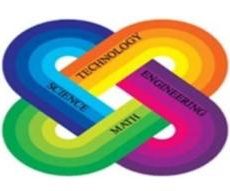All of the following information was gathered from the WHO Situation report for March 5, 2020. For a stream of updates, visit the COVID Update post and bookmark it for later
Infodemics are an excessive amount of information about a problem, which makes it difficult to identify a solution. Infodemics can spread misinformation, disinformation and rumors during a health emergency. Infodemics can hamper an effective public health response and create confusion and distrust among people. To manage infodemics, WHO has developed an innovative communication initiative called the WHO Network for Information in Epidemics (EPI-WIN).
To download the pdf from the WHO, click here. It is also embedded at the bottom of the post.
During emergencies demand for information is high, there are often many unknowns and people will seek information from sources and individuals and entities they trust. WHO, through EPI-WIN, has identified such trusted sources and engaged them not only as amplifiers of accurate, timely information, but also as advisers on the kind of information that their constituents need and urgently want to see.
Information exchange takes place through regular engagement calls with these “trust chains”. EPI-WIN leverages all communications platforms available to it and partners with these trusted channels to amplify evidence-based information tailored to different audiences, answering pertinent questions as the event unfolds and linking them to additional response assets.

A “trust chain” with employers and employees – the world of work Such a “trust chain” has been established around the world of work. Workers spend approximately one-third of their adult lives at work. Because of this, employers and businesses can serve as amplifiers of trusted information about COVID-19 for employees. Employers in both private and public sector are asking how to protect their staff, contractors and customers from COVID-19. Employees associations and trade unions are also seeking information on how WHO policies, guidance and recommendations can be implemented in their workplace settings.
Working with the World Economic Forum, EPI-WIN has established networks with the key business sectors and public enterprises likely to be impacted by COVID-19 and future epidemics. These have been grouped into networks of Healthcare & Health Workers, Travel & Tourism, Food & Agriculture and International Mass Gatherings. Within each network, there are multi-national enterprises, professional associations and UN specialized bodies representing sectors that employ tens of millions of people and account for many billions of dollars in economic activity.
EPI-WIN is also working with WHO’s Department of Occupational Safety and Health and their counterpart; global trade unions through the International Labor Organization (ILO)’s Bureau of Workers Activities (ACTRAV) and the International Trade Union Council (ITUC) which brings together affiliated trade union bodies that represent 210 million workers in 163 countries.


